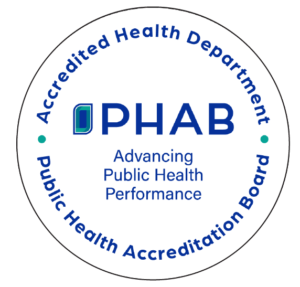What is chickenpox?
Chickenpox (Also called varicella) is a disease that can be spread to other people. It is caused by the varicella-zoster virus (germ), which causes a blister-like rash, itching, tiredness and fever. The rash starts on the trunk and face, but can spread over the entire body causing between 250 to 500 itchy blisters.
Who is most likely to get chickenpox?
Most cases of chickenpox happen in people 15 years old and under. Before the chickenpox vaccine, the disease had annual cycles, having the highest number of cases in the spring of each year.
How do you get chickenpox?
Chicken pox spreads easily from person to person by direct contact (touching) or through the air when a person that has chickenpox coughs or sneezes. A person with chickenpox is contagious (can spread the disease) one to two days before the rash appears and until all blisters have formed scabs. It takes from 10 to 21 days after contact with an infected person for someone to get chickenpox.
What is it like to have chickenpox?
In children, chickenpox usually causes an illness that lasts five to 10 days. Children usually miss 5 or 6 days of school or childcare because of their chickenpox. About half of all children with chickenpox will see their doctor because of symptoms like high fever, severe itching, an uncomfortable rash, dehydration or headache.
Are there any complications (serious problems) that come from having chickenpox?
About one child in 10 has a complication (serious problem) from chickenpox that is serious enough to visit a doctor. These complications include:
- Infected skin lesions (blisters);
- Dehydration from vomiting or diarrhea;
- Asthma that is made worse from having chickenpox;
- Bacterial infections (illnesses from bacteria) which can affect many parts of the body like the skin, tissues under the skin, bone, lungs (causing pneumonia), joints and the blood;
- Viral infections (illnesses caused by viruses) caused by having the chickenpox virus, such as viral pneumonia, bleeding problems and swelling of the brain (encephalitis).
Adults, infants, adolescents and people with weak immune systems from illness or medications are more likely to have a serious case of chickenpox with complications. Before the chickenpox vaccine, there were about 100 deaths and 11,000 people had to go to the hospital because of the chickenpox virus each year. Also, one child and one adult died from died each week from chickenpox.
Can a healthy person with chickenpox die from it?
Yes. Many of the deaths and complications from chickenpox happen in people who were healthy. Most of the healthy adults who died from chickenpox contracted the disease from their children who did not get the chickenpox vaccine.
How can I protect myself from getting chickenpox?
There is a chickenpox vaccine that can stop people from getting and spreading chickenpox.
Can I get chickenpox more than once?
Yes, but most people do not get chickenpox more than once.
Is it safe to just let children get chickenpox instead of getting the vaccine?
You can never know which child will have a mild case of chickenpox and who will have a serious or even deadly case of the disease. You should talk to your doctor about the chickenpox vaccine for your children.

